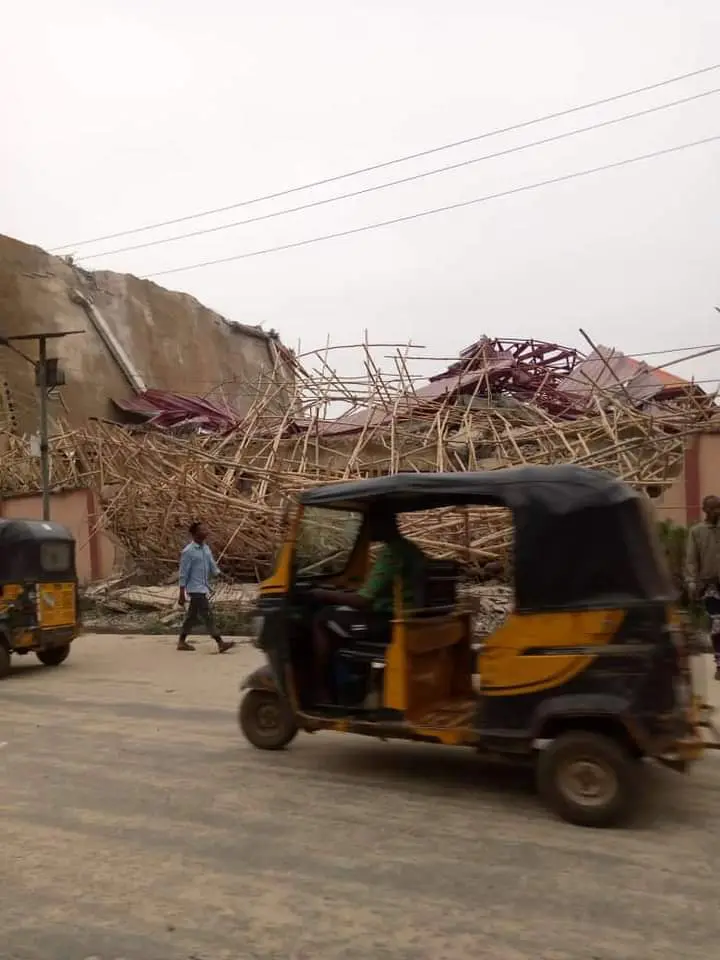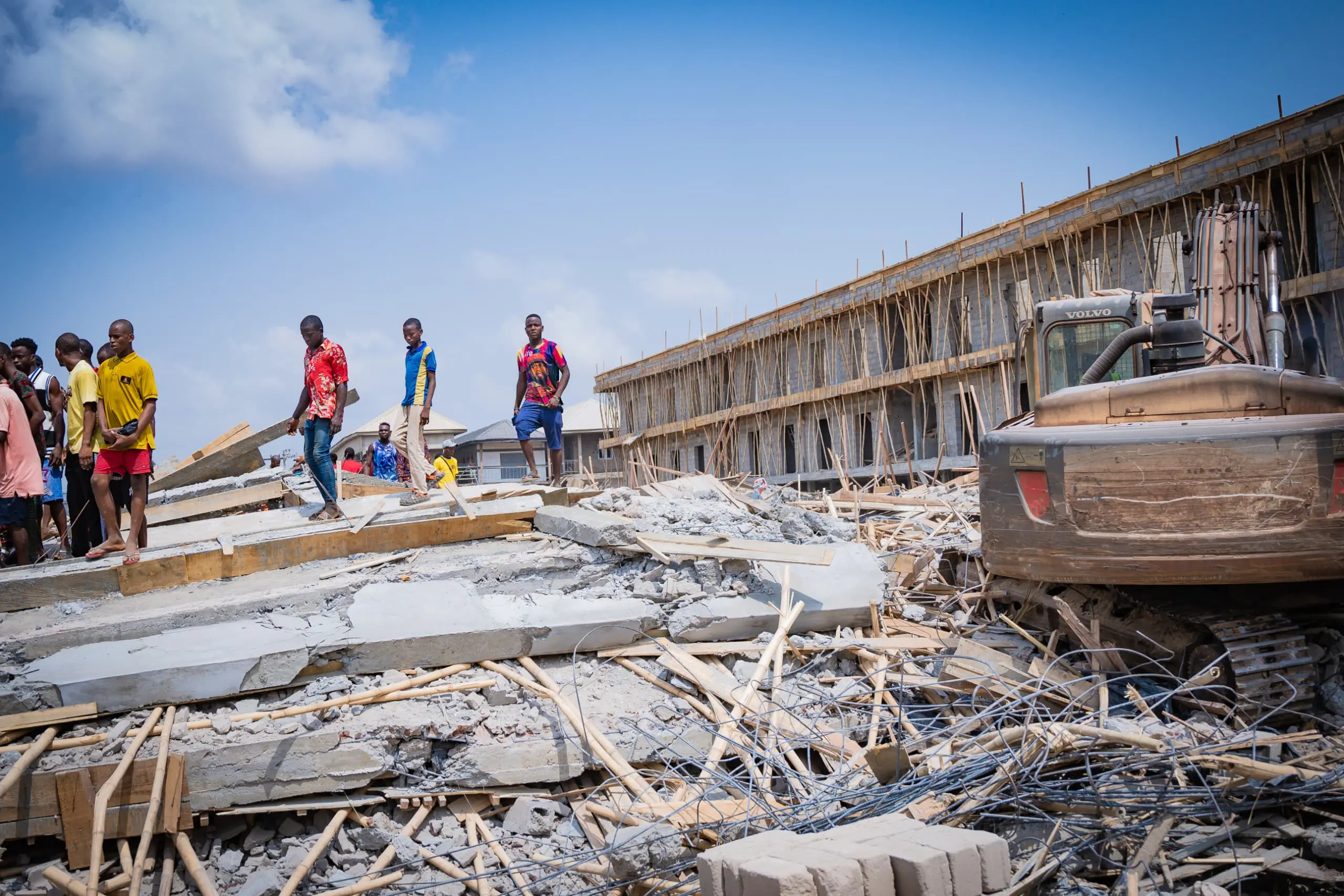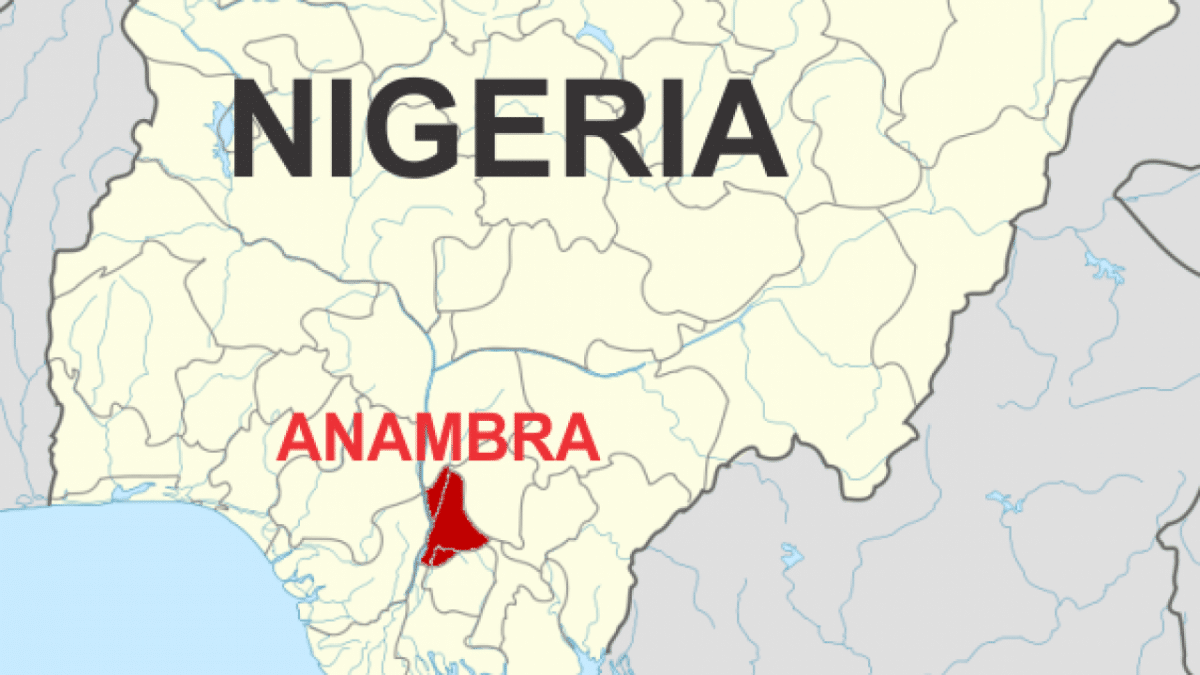On Thursday, (yesterday) a two-storey building collapsed at Eke Amawbia Market in Awka, Anambra State, leaving many feared dead.
The tragic incident happened at about 12 noon, causing panic in the area.
Traders, who witnessed the collapse, blamed the disaster on substandard engineering work, alleging that the building’s structural integrity had been compromised.
The development has raised concern in the state as it added to the numerous list of collapsed buildings in the state this year, 2024.
Earlier in February this year, at least five people were killed and 26 others rescued when a building collapsed at Ochanja Market in Anambra State.
The structure, allegedly being erected by the state government at Odu-Igbo Market in Ochanja, Onitsha North Local Government Area was a two-storey building.
The development was greeted with jest as many taunted the Prof Chukwuma Soludo-led government, especially as Anambra has a law stipulating the confiscation of any land where there is a building collapse.
Those who made a jest of the governor stated that if it were the project of a private individual, the government would have clamped down on such a person.
Governor Soludo, who visited the scene, expressed sadness over the incident, describing it as “tragic.”
He revealed that the collapsed building was constructed by a private developer without government approval.
He reiterated his commitment to address illegal constructions in the state.
“My government did not approve of this building. We will redesign this area and build it properly. All buildings constructed without proper approval will be brought down henceforth, including structures currently under construction at other markets,” he said.
The governor said he would conduct “a comprehensive inventory of buildings” in markets and public places within the state.
“Markets will undergo integrity tests to identify and remove potentially unsafe structures and individuals found responsible for illegal construction will face legal consequences,” he said.
Subsequently, many private buildings in the area that were deemed not to have passed government tests were bulldozed.
A month later, in March, another building collapsed in the Fegge area of Onitsha.
This time, it was a five-storey building, but no casualty was recorded.
Confirming the incident, the Chairman of the Anambra State Physical Planning Board, Chike Maduekwe, decried the development and expressed gratitude to God that no life was lost.
He, however, disclosed that the approval given was for the construction of a three-storey building but the developer went contrary to plan and started erecting a five-storey building.
The building was meant to serve commercial purposes upon completion.
Not done, two months after in May, a five-floor building being financed by the Old Boys Association of Dennis Memorial Grammar School (DMGS), Onitsha, a prestigious secondary school, owned by the Anglican Communion collapsed, trapping some workers.
The building was meant for the celebration of the 100th year anniversary of the school, and named Centenary Building.
In Anambra, the church, especially Catholic and Anglican churches are known to be powerful and integral parts of government.
Since after some of these incidents, many have been raising eyebrows as to why there hasn’t been a sanction, especially as two of the buildings involved belonged to the government and the Anglican Church.
In what looked like a reaction to this, Soludo two weeks ago set up a committee, to investigate the collapse of the Ochanja Market stalls and the Anglican Church’s centenary building.
These have however been mired in politics as there have been disagreements over the composition of the committee, just as many have described it as a political exercise that will end up futile.
One day after Soludo announced the constitution of the committee, the management of DMGS, and the Anglican Church rejected some members of the panel.
Lawyers from the legal team representing DMGS and the Diocese on the Niger, Anglican Communion, rejected two members of the panel investigating the incident.
In a press release by Sir Oselloka Offoh, Director of Communications for the Diocese, the Church rejected Prof. Akaolisa Ezeagu, the panel’s chairman, and Engr. Sir Victor Meju, a key member.
They accused them of making biased comments and publications following the incident, and doubted their credibility and fairness.
Part of the statement reads: “The Legal Team pleaded with the Governor most respectfully to withdraw the two persons from the panel or in the alternative the two persons be allowed to honorable recuse themselves from the panel, so that Natural Justice, Equity, Good Conscience and Fairness shall prevail in the deliberation and report of the panel.”
They, however, commended the governor for setting up the Panel of Enquiry to investigate the immediate and remote causes of building collapses in parts of the state.
“The Legal Team believes that this laudable initiative by the Governor will help to ensure utmost professionalism in the construction sector,” the church said.
Meanwhile, reactions from some indigenes of the state have pointed to bias on the part of the state government.
An indigene, Mr Abel Ezechi said: “This panel is just a political solution to the teething problem on ground. The state has a law that any building that collapses, the owner forfeits the land.
“The first building that collapsed this year belongs to the government, even though they are trying to deny it. What has the government done about this?
“They did almost nothing until a private building collapsed again in that area, before they decided to subject all ongoing buildings in the area to an integrity test. That operation was headed by the local government chairman, and a lot of buildings were pulled down.
“It only took the government months again to regain their voice when the centenary building of DMGS collapsed. Now they have set up a panel and I hear that some members of the panel have been rejected.”
Meanwhile, a respondent who chose to be anonymous told DAILY POST that the Anglican Church was right to have rejected some people in Soludo’s panel.
He said most of the people in the panel were theorists who parade high academic qualifications, but have no practical experience on the matter.
“They are right to reject the charade. There shall not be elements of bias in the forensic analysis, otherwise the trend of collapsing will continue.
“I worked in a cement manufacturing company as an analyst in the Quality Control Laboratory.
“The crop of people that make up the panel do not know what cement manufacturing, composition and constituents entails. They are all professionals from the rank of end users, they can not see the cause.
“The incidents of collapsing of the high rise buildings may be attributed to the cement used in forming the mortar, because, C2S, C3S, C4A, C4AF ratios must be right.
“The composition of M2O, Mn+O, etc must not be above a certain range, otherwise there will not be late strength development of the concrete formed, no matter the correctness of the structural, architectural and engineering designs; hence the building must crack and eventually collapse.
“If a good job is to be done and the collapses are to be stopped, the above composition must be checked and these panelists cannot deliver, as mere paperwork will just be submitted to the government where it will be kept in files to collect dust.
“The lawyers and the church are right. It is a panel set up to do a job of clearing the government from liability,” the source said.
Meanwhile, there have been testimonies before the panel, suggesting that there were lapses either in the market stall construction.

The Transition Chairman of Onitsha South Local Government Council of Anambra State Chief Emeka Joseph Orji while appearing before the Probe Panel submitted the building plan of the Ochanja market stalls project, disclosing it was originally designed to be a storey-building against the two storey-building that collapsed.
Anambra: A harvest of collapsed buildings, as politics takes centre stage



